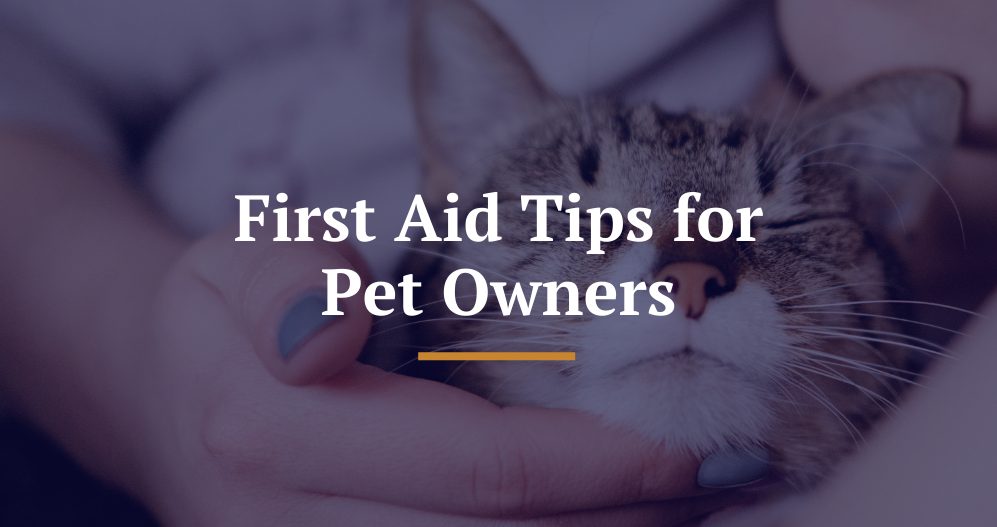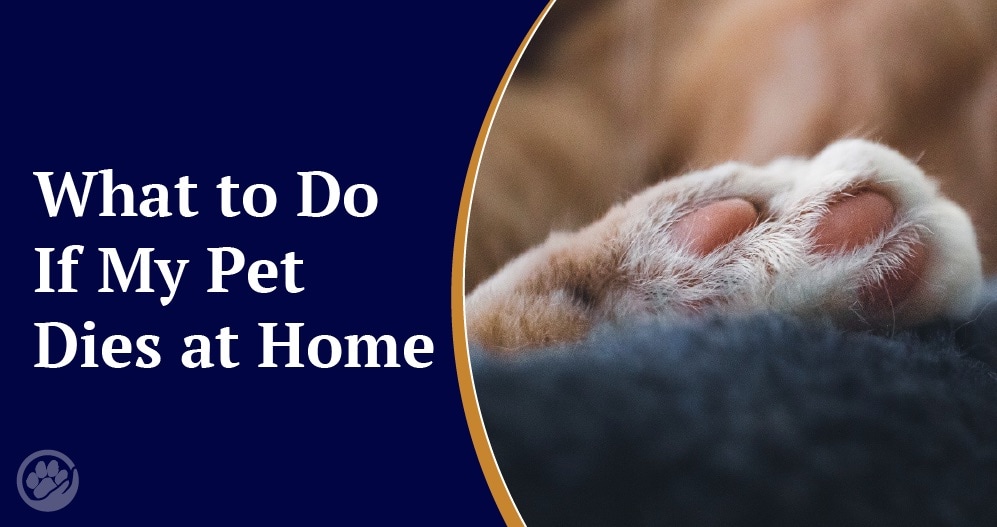
Just as you care for your child or aging family members when they are sick or injured, pet parents need to know how to care for their pets in case of an emergency as well. Taking prompt action should an accident or health crisis occur with your pet can make all the difference, so it is best to be prepared with some basic pet first aid tips.
Be Prepared
Time is of the essence when your pet is sick or injured. Always keep the following information easily accessible.
- Your veterinarian’s phone number and/or the local emergency vet’s number
- Your pet’s health insurance policy number and provider’s phone number, if you carry pet insurance
- Your pet’s medical records in a safe, easily accessible place. Bring these with you when you take your dog for emergency treatment.
- Poison control number
Be Cautious
If your pet is injured, it could be in pain and is also most likely scared and confused. Pain and fear can make animals unpredictable or even dangerous, so don’t assume even the gentlest pet will not bite or scratch if injured.
Stay Calm
Perform any examination slowly and gently and stop if your animal becomes more agitated.
If your pet is sick or injured, it is important to remember that first aid administered to your pet should be followed by immediate veterinary care. While not a substitute for veterinary care, first aid may save your pet’s life until it receives veterinary treatment. Here are tips for treating some of the more common injuries and illnesses that you may experience with your pet.
Hit by car
Cover your injured pet to keep him or her warm and to prevent them from going into shock. If you see bleeding, apply light, gentle pressure to staunch the flow of blood and seek immediate veterinarian care.
Laceration
When your pet has a cut, clean the wound and apply a non-adhesive dressing onto the wound. Wrap it with a bandage and call your veterinarian.
Poisoning
There are a number of poisons or poisonous materials pets can get into – no matter how diligent we are in pet-proofing the home. If your pet gets into poison or eats a poisonous plant or food that is dangerous for pets (like chocolate), call the vet or poison control center immediately. Let the vet know what your pet has eaten, how much, and when. Do not induce vomiting unless your vet recommends it.
Seizure
If your pet has a seizure your first concern is to keep them safe. Keep your pet away from any objects, including furniture that might hurt it. Do not try to restrain the pet. After the seizure has stopped, keep your pet as warm and quiet as possible and contact your veterinarian. If possible, time the seizure so you can share this information with the vet.
Heatstroke
Signs of heatstroke include excessive panting and distress. If you notice this, move the dog or cat to a cool place, turn on a fan and use damp towels to cool him or her off. Place the wet towels under your dog’s front and back legs to cool them down and place ice chips in their mouth. Call your veterinarian.
Fracture
Gently lay your pet on a flat surface for support. While transporting your injured pet to a veterinarian, use a board or other firm surface as a stretcher or use a throw rug or blanket as a sling. You can attempt to set the fracture with a homemade splint, but remember that a badly-placed splint may cause more harm than good. If in doubt, it is always best to leave the bandaging and splinting to a veterinarian.
Insect sting
In the summer months, bee stings are a hazard. If your pet gets stung, gently try to remove the stinger. Wash the area with warm water or bicarbonate of soda. If your dog or cat has been stung in the mouth or throat, immediately call your veterinarian as this could interfere with their breathing.
While it may not be something that you want to think about, the fact is that if your beloved pet is injured or sick, there may not be anything you can do to help them. Whether your pet dies at home or at your veterinarian’s office, it is our privilege at Pet Cremation Services to help you say your final goodbye.





